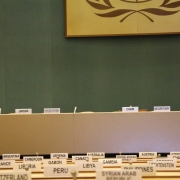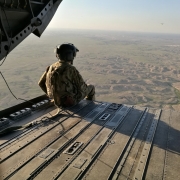What is Article 370?
Topic of Study [For H2 History 9174 Students]:
Paper 1: Conflict and Cooperation (1948-2000)
Section B: Essay Writing
Theme III Chapter 2: Indo-Pakistani Conflict (1947-1972)
Historical context
After the end of the Second World War, Third World nations went through decolonisation. In 1947, the British Parliament passed the Indian Independence Act, fulfilling the aspirations of the people in India.
On 15 August 1947, it was declared that India was to be partitioned to form two independent dominions – India and Pakistan. This Partition was attributed to multiple factors, including Lord Louis Mountbatten’s hastily conceived strategies to withdraw the British.
The division of the subcontinent into India and Pakistan was triggered by a combination of factors in the metropole and the colony: In addition to the shifting colonial position on retaining India as a colony, the demand for Partition was articulated within the context of a colonial state’s framing of provincial politics and intra-elite factional conflicts within India that had already prepared the ground for irreconcilable differences. The two-nation theory, driven more by politics than religion, grew in momentum from the fears stoked by democratization in the 1930s, the Indian National Congress’s anti-war stance, the growing empowerment of the Muslims League, and the British announcement to quit India.
An excerpt taken from “The Performance of Nationalism India, Pakistan, and the Memory of Partition” by Jisha Menon.
Incorporation of Article 370 & Article 35A: Special Status of Jammu and Kashmir
Through the Instrument of Accession to India, Jammu and Kashmir (J&K) joined India in October 1947 after much contemplation whether to accede to India or Pakistan.
At first, the Princely States of India were permitted to have a separate constitution. However, in 1949, they agreed to accept the Indian Constitution for their own states. In contrast, J&K opposed this move. Then, Maharaja Hari Singh’s successor, Sheikh Abdullah, forged a new political relationship with India, leading to the attainment of special rights for J&K. This was known as Article 370.
On 17 October 1949, the Indian government introduced Article 370 as part of the Indian Constitution, granting J&K autonomy of internal administration. In other words, J&K was permitted to pass its own laws in all matters, excluding finance, foreign affairs, communications and defense.
In 1952, Abdullah and Nehru forged a 1952 Delhi Agreement, which led to the introduction of Article 35A in 1954. Article 35A functions as a provision for the special treatment of ‘permanent residents’ of J&K, such as employment, property ownership and settlement.
Article 370 was incorporated in the Constitution of India with particular reference to Jammu and Kashmir. No other Princely State that acceded to India in 1947 by executing the same standard instrument of accession was referred to in this way in the Constitution of India that came into force on 26th January, 1950. […] Yes, may be there are still some in J&K, who have grievance against Nehru or Congress for putting the people of J&K in illusions or still keeping J&K like a Colony, earlier it was of the British and now it is of India under Article 370 some may allege.
An excerpt taken from “Jammu & Kashmir- A Victim: Understanding the Complexities of the Conflict in Kashmir” by Daya Sagar.
Recent developments: Revocation of Article 370
In August 2019, the Modi government revoked Article 370, marking an end to the special status of J&K. Modi asserted that the revocation was necessary to place J&K on the same footing as the rest of India, aligning with his political party’s election manifesto.
The shocking announcement raised concerns of demographic changes within J&K, as non-Kashmiris would be allowed to purchase land in the Muslim-majority region.
Despite the provisions included in Article 370, there have been several presidential orders over the years that India has used to increase its reach and control in the state. Nonetheless, Article 370 was symbolically important for many living in Jammu and Kashmir. The state having its own constitution and flag allowed the people to hold on to a unique cultural and linguistic identity. Consequently, the revocation of Article 370 was perceived by many Kashmiris as an assault on their national identity.
An excerpt taken from “Abrogation of Article 370: An Analysis of the Supreme Court Verdict” by Imran Ahmed and Muhammad Saad Ul Haque.
On an interesting note, a movie titled “Article 370” was released in 2024 that revolves around a plot that an agent who was tasked to fight terrorism following the abrogation of Article 370.
Join our JC History Tuition to learn more about the Indo-Pakistani conflict under the theme of Conflict and Cooperation. The H2 and H1 History Tuition feature online discussion and writing practices to enhance your knowledge application skills. Get useful study notes and clarify your doubts on the subject with the tutor. You can also follow our Telegram Channel to get useful updates.
We have other JC tuition classes, such as JC Math Tuition and JC Chemistry Tuition. For Secondary Tuition, we provide Secondary English Tuition, Secondary Math tuition, Secondary Chemistry Tuition, Social Studies Tuition, Geography, History Tuition and Secondary Economics Tuition. For Primary Tuition, we have Primary English, Math and Science Tuition. Call 9658 5789 to find out more.











